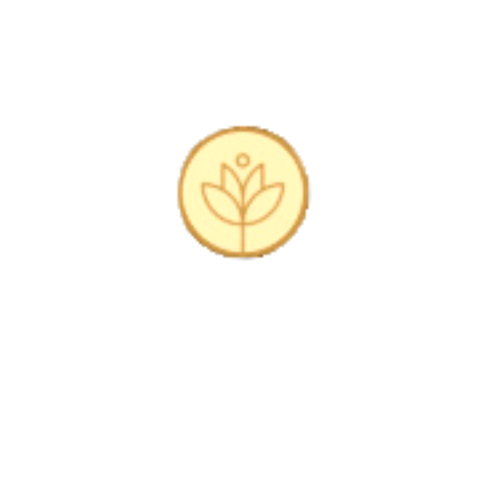Our true heart can be understood as the essence of who we are—a place of deep inner wisdom, clarity, and connection beyond the noise of the thinking mind. It is not the physical organs of the five senses or the fleeting emotions often associated with the heart, but rather a metaphor for our pure awareness and authentic self.
The true heart is:
1. A Source of Inner Knowing
It holds wisdom that transcends intellectual reasoning, offering clarity that comes from direct experience and intuitive awareness with acceptance of the way things are. When we connect with this space, we “know” in a way that goes beyond just intellectual knowledge.
2. A Space of Safety and Connection
Much like the bond between a mother and child, our true heart is a refuge where we feel safe, supported, and whole. It’s where we can rest and take refuge from the chaos of the world, which can flood and overwhelm us.
3. A Still Forest Pool
The true heart reflects our deepest truths, guiding us toward authenticity and integrity. It’s where we align with what is real and meaningful in life.
4. The Seat of Compassion and Awareness
From our true hearts, we naturally experience empathy, love, and an acceptance of life as it is. This openness allows us to understand pain and joy without resistance or judgment. To discover and connect with our true heart, we need to connect with the deeper awareness that underlies thoughts, feelings and emotions, and embrace our experiences fully—both pleasant and painful—and reflect deeply. The journey to the true heart is not about adding more knowledge but peeling away the layers of distraction and conditioning to uncover what has always been within.
We talk about our hearts but don’t know where they are or how they feel. When we find the connection, we can rest in it, like an unborn child with its mother. The connection is safe. We can stay there and feel safe. We are like crying children when we come out of our hearts. The world of the five senses rushes back and impinges on our hearts and minds. All our habitual reactions and emotions come back.
The true heart has abundant energy. We get energy from the heart. When we cultivate the heart’s energy, we can use it to develop wisdom.
In life, we are prone to developing knowledge rather than wisdom. There are two kinds of knowledge. One is through the mind and thinking, and the other is through experience.
For example, we could read about fire and that it burns. But if we only read about it, we wouldn’t have the experience. In one book, it might say the fire is hot; in another, it might say the fire isn’t hot; it’s warm and doesn’t burn. Someone else might say the flame of fire is cold. Then we would be confused. People say different things, and we would start to doubt because we haven’t experienced fire directly.
One teacher says one thing, and another teacher says something else. They say the complete opposite. The real knowing takes place in our hearts when we touch the fire. Then we don’t need to argue or doubt because we know. The knowing is so deep that it doesn’t disappear because it’s imprinted in our experience.
Nowadays, schools tend to focus more on acquiring knowledge than common sense. We accumulate more and more knowledge. Common sense is like you only open the door if someone knocks.
Direct experience can burn away doubt, ignorance and all the negative states of mind. We can learn from reflection. When we do something, we can reflect on why something worked and didn’t. We understand the results of action, and this leads to wisdom. To learn something is not to keep falling into the same trap. We will not learn wisdom or common sense if we follow whatever comes into our monkey minds. We can connect with the heart’s intelligence through the body’s energetic system. Meditate to learn something through observation and reflection, and not be fooled into constantly falling into the same trap.
For example, if we are doing sitting meditation, why do we suddenly need to move? We move because we are in pain. We might be angry, but watch it. Now we can try to sit through the pain. If you react habitually and immediately react to whatever impulse comes into your mind, you won’t see what is happening and develop wisdom. Wisdom or common sense is very difficult to teach. We have to observe experience to understand what pain is. What is fear? But we don’t want to feel it because it is painful. We have to find a tolerance for how to accept the pain. Often the fear of fear is worse than the fear. The only way we can understand pain is first to accept pain and then ask what pain is. That holds for fear and all other emotions. What is loneliness? How does it feel? What is the difference between loneliness and fear? What is the difference between fear, anger and grief? The first thing is we have to feel it and accept it. Is it hot or cold? What is the sensation? Where do you feel it? Does the energy jump or jitter? Do the sensations come and go? Do they move around? Like scientists, we can explore in this way rather than just getting lost in blind emotion and habitual reaction. But often, we don’t want to or get so lost in the emotion that we don’t learn and get wiser.
We listen to teachers and think we understand what they are saying. We listen to their experience and think we understand. But one day, we realise it is all in our heads, and we haven’t experienced it in our hearts. We are just strengthening bad habits and our thinking minds. But as soon as we realise, we start to wake up. We start to understand the difference between the heart and the mind. We become our masters.
The knowing of the mind is noisy, but the knowing of the heart is like clear water. Like water, the heart of pure awareness can gradually soften, smooth, and break the stones blocking the heart. We realise everything is surface ripples or waves, and we touch the deeper ocean beneath these surface waves. But the only way to do this is to start observing and recognising that we are the ocean, not the waves.

